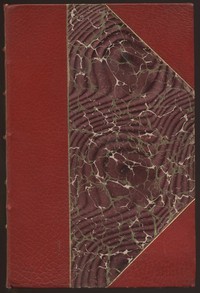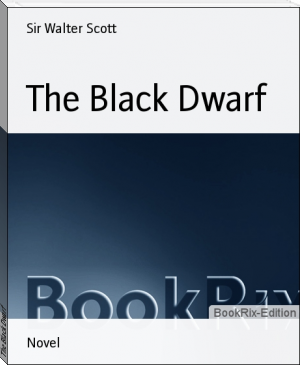Old Mortality, Volume 2. by Walter Scott (most important books to read txt) 📗

- Author: Walter Scott
Book online «Old Mortality, Volume 2. by Walter Scott (most important books to read txt) 📗». Author Walter Scott
Morton saw the importance of the advice, and, throwing himself on the horse which cuddie held in readiness for him behind the thicket, galloped towards a body of cavalry which chanced to be composed entirely of Cameronians. Ere he could speak his errand, or utter his orders, he was saluted by the execrations of the whole body.
"He flies!" they exclaimed—"the cowardly traitor flies like a hart from the hunters, and hath left valiant Burley in the midst of the slaughter!"
"I do not fly," said Morton. "I come to lead you to the attack. Advance boldly, and we shall yet do well."
"Follow him not!—Follow him not!"—such were the tumultuous exclamations which resounded from the ranks;—"he hath sold you to the sword of the enemy!"
And while Morton argued, entreated, and commanded in vain, the moment was lost in which the advance might have been useful; and the outlet from the bridge, with all its defences, being in complete possession of the enemy, Burley and his remaining followers were driven back upon the main body, to whom the spectacle of their hurried and harassed retreat was far from restoring the confidence which they so much wanted.
In the meanwhile, the forces of the King crossed the bridge at their leisure, and, securing the pass, formed in line of battle; while Claverhouse, who, like a hawk perched on a rock, and eyeing the time to pounce on its prey, had watched the event of the action from the opposite bank, now passed the bridge at the head of his cavalry, at full trot, and, leading them in squadrons through the intervals and round the flanks of the royal infantry, formed them in line on the moor, and led them to the charge, advancing in front with one large body, while other two divisions threatened the flanks of the Covenanters. Their devoted army was now in that situation when the slightest demonstration towards an attack was certain to inspire panic. Their broken spirits and disheartened courage were unable to endure the charge of the cavalry, attended with all its terrible accompaniments of sight and sound;—the rush of the horses at full speed, the shaking of the earth under their feet, the glancing of the swords, the waving of the plumes, and the fierce shouts of the cavaliers. The front ranks hardly attempted one ill-directed and disorderly fire, and their rear were broken and flying in confusion ere the charge had been completed; and in less than five minutes the horsemen were mixed with them, cutting and hewing without mercy. The voice of Claverhouse was heard, even above the din of conflict, exclaiming to his soldiers—"Kill, kill—no quarter—think on Richard Grahame!" The dragoons, many of whom had shared the disgrace of Loudon-hill, required no exhortations to vengeance as easy as it was complete. Their swords drank deep of slaughter among the unresisting fugitives. Screams for quarter were only answered by the shouts with which the pursuers accompanied their blows, and the whole field presented one general scene of confused slaughter, flight, and pursuit.
About twelve hundred of the insurgents who remained in a body a little apart from the rest, and out of the line of the charge of cavalry, threw down their arms and surrendered at discretion, upon the approach of the Duke of Monmouth at the head of the infantry. That mild-tempered nobleman instantly allowed them the quarter which they prayed for; and, galloping about through the field, exerted himself as much to stop the slaughter as he had done to obtain the victory. While busied in this humane task he met with General Dalzell, who was encouraging the fierce Highlanders and royal volunteers to show their zeal for King and country, by quenching the flame of the rebellion with the blood of the rebels.
"Sheathe your sword, I command you, General!" exclaimed the Duke, "and sound the retreat. Enough of blood has been shed; give quarter to the King's misguided subjects."
"I obey your Grace," said the old man, wiping his bloody sword and returning it to the scabbard; "but I warn you, at the same time, that enough has not been done to intimidate these desperate rebels. Has not your Grace heard that Basil Olifant has collected several gentlemen and men of substance in the west, and is in the act of marching to join them?"
"Basil Olifant?" said the Duke; "who, or what is he?"
"The next male heir to the last Earl of Torwood. He is disaffected to government from his claim to the estate being set aside in favour of Lady Margaret Bellenden; and I suppose the hope of getting the inheritance has set him in motion."
"Be his motives what they will," replied Monmouth, "he must soon disperse his followers, for this army is too much broken to rally again. Therefore, once more, I command that the pursuit be stopped."
"It is your Grace's province to command, and to be responsible for your commands," answered Dalzell, as he gave reluctant orders for checking the pursuit.
But the fiery and vindictive Grahame was already far out of hearing of the signal of retreat, and continued with his cavalry an unwearied and bloody pursuit, breaking, dispersing, and cutting to pieces all the insurgents whom they could come up with.
Burley and Morton were both hurried off the field by the confused tide of fugitives. They made some attempt to defend the streets of the town of Hamilton; but, while labouring to induce the fliers to face about and stand to their weapons. Burley received a bullet which broke his sword-arm.
"May the hand be withered that shot the shot!" he exclaimed, as the sword which he was waving over his head fell powerless to his side. "I can fight no longer." [Note: This incident, and Burley's exclamation, are taken from the records.]
Then turning his horse's head, he retreated out of the confusion. Morton also now saw that the continuing his unavailing efforts to rally the fliers could only end in his own death or captivity, and, followed by the faithful Cuddie, he extricated himself from the press, and, being well mounted, leaped his horse over one or two enclosures, and got into the open country.
From the first hill which they gained in their flight, they looked back, and beheld the whole country covered with their fugitive companions, and with the pursuing dragoons, whose wild shouts and halloo, as they did execution on the groups whom they overtook, mingled with the groans and screams of their victims, rose shrilly up the hill.
"It is impossible they can ever make head again," said Morton.
"The head's taen aff them, as clean as I wad bite it aff a sybo!" rejoined Cuddie. "Eh, Lord! see how the broadswords are flashing! war's a fearsome thing. They'll be cunning that catches me at this wark again.—But, for God's sake, sir, let us mak for some strength!"
Morton saw the necessity of following the advice of his trusty squire. They resumed a rapid pace, and continued it without intermission, directing their course towards the wild and mountainous country, where they thought it likely some part of the fugitives might draw together, for the sake either of making defence, or of obtaining terms.
CHAPTER XII. They require Of Heaven the hearts of lions, breath of tigers, Yea and the fierceness too. Fletcher.
Evening had fallen; and, for the last two hours, they had seen none of their ill-fated companions, when Morton and his faithful attendant gained the moorland, and approached a large and solitary farmhouse, situated in the entrance of a wild glen, far remote from any other habitation.
"Our horses," said Morton, "will carry us no farther without rest or food, and we must try to obtain them here, if possible."
So speaking, he led the way to the house. The place had every appearance of being inhabited. There was smoke issuing from the chimney in a considerable volume, and the marks of recent hoofs were visible around the door. They could even hear the murmuring of human voices within the house. But all the lower windows were closely secured; and when they knocked at the door, no answer was returned. After vainly calling and entreating admittance, they withdrew to the stable, or shed, in order to accommodate their horses, ere they used farther means of gaining admission. In this place they found ten or twelve horses, whose state of fatigue, as well as the military yet disordered appearance of their saddles and accoutrements, plainly indicated that their owners were fugitive insurgents in their own circumstances.
"This meeting bodes luck," said Cuddie; "and they hae walth o' beef, that's ae thing certain, for here's a raw hide that has been about the hurdies o' a stot not half an hour syne—it's warm yet."
Encouraged by these appearances, they returned again to the house, and, announcing themselves as men in the same predicament





Comments (0)